19 April 2025
So, you're an athlete committed to a plant-powered lifestyle, but you're left wondering, "Am I getting enough protein?" Trust me, you're not alone. Whether you're training for your next marathon, building muscle at the gym, or just want to keep up with your kids without crashing by noon—protein plays a huge role in your active life.
But here's the kicker—getting enough protein on a vegan diet isn’t as complicated as folks make it out to be. Yep, no need to chug down chalky shakes or live on tofu... unless you love it, of course.
In this guide, we’ll break down everything you need to know about mastering plant-based protein as a vegan athlete. From top protein sources and how much you actually need, to meal plans and smart supplements—consider this your one-stop shop for all things plant-protein.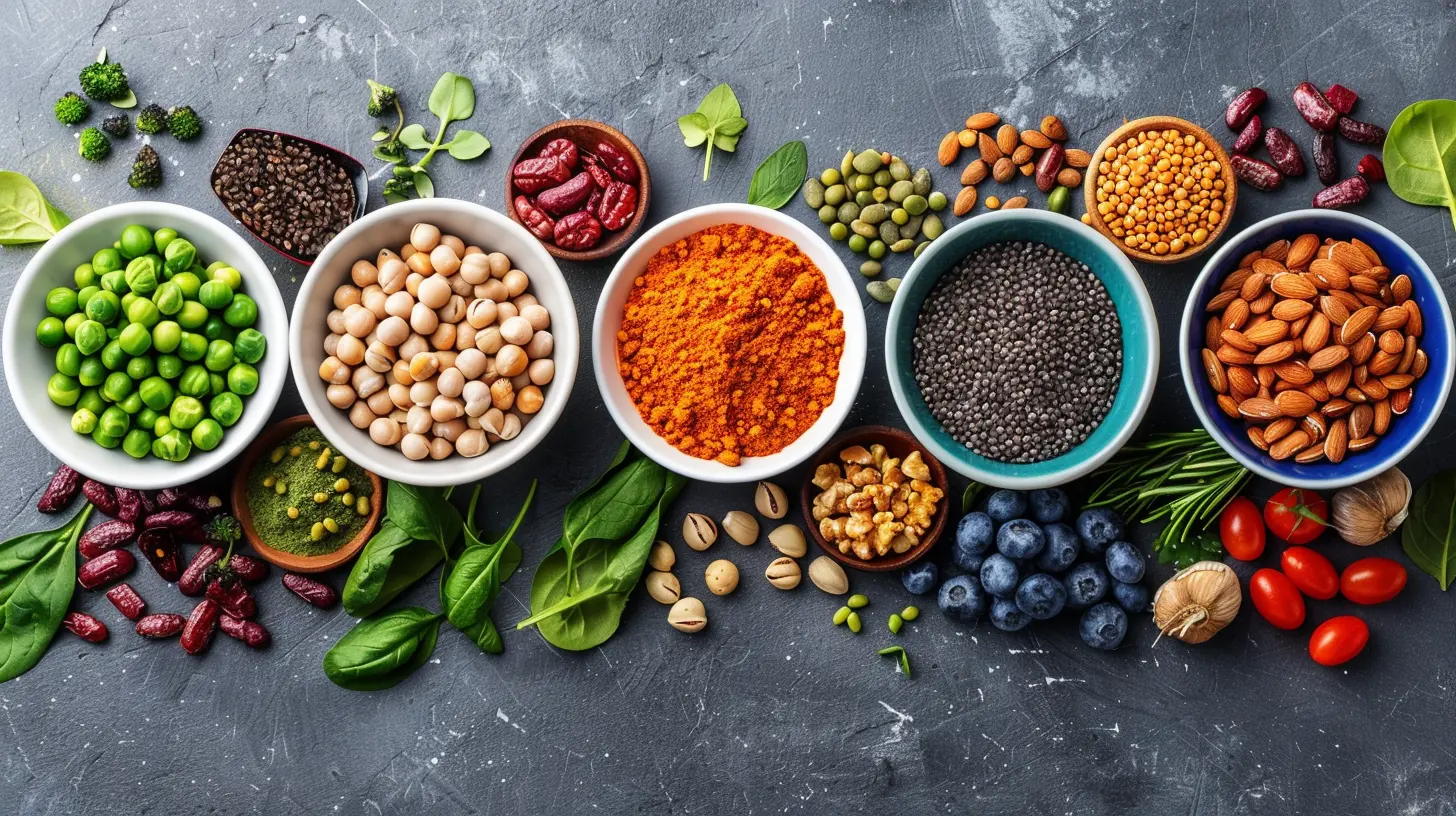
Why Protein Even Matters (Especially for Vegan Athletes)
Let’s get one thing straight—protein isn’t just for bodybuilders showing off biceps that could crush bowling pins. It’s essential for repairing muscle tissue, building new muscle, balancing hormones, and keeping your immune system strong.When you’re active—whether it's weightlifting or sprinting—you create tiny tears in your muscle fibers. Protein swoops in like a superhero to repair and rebuild, making your muscles stronger over time. Skimp on protein, and your recovery, strength gains, and energy levels can seriously suffer.
Now here's the twist: meat and dairy aren’t the be-all-end-all sources of protein. Plants have got your back—and your biceps.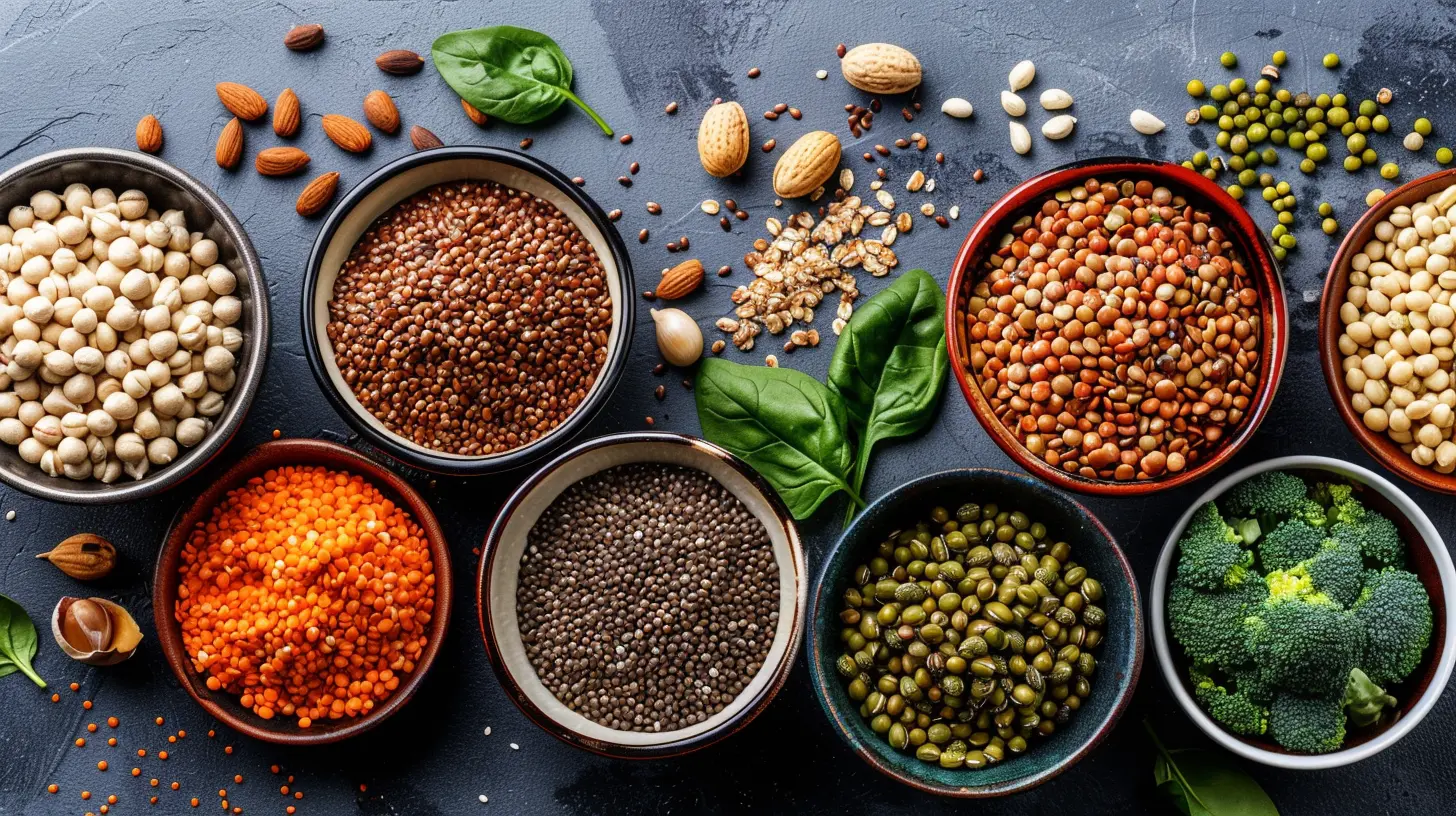
How Much Protein Do You Really Need?
There’s a lot of confusion out there, and the answer is: it depends. But let’s break it down simply.For most active individuals, the general recommendation is:
- 1.2 to 2.0 grams of protein per kilogram of body weight per day.
If you're a vegan athlete, aim closer to the upper end — around 1.6 to 2.0 grams/kg, because plant proteins are sometimes less concentrated and slightly less absorbed than their animal counterparts.
👉 _Example:_
If you weigh 70 kg (about 154 lbs), you’d need between 112-140 grams of protein daily.
Don’t panic! Once you know what foods to focus on, you’ll hit that number without breaking a sweat.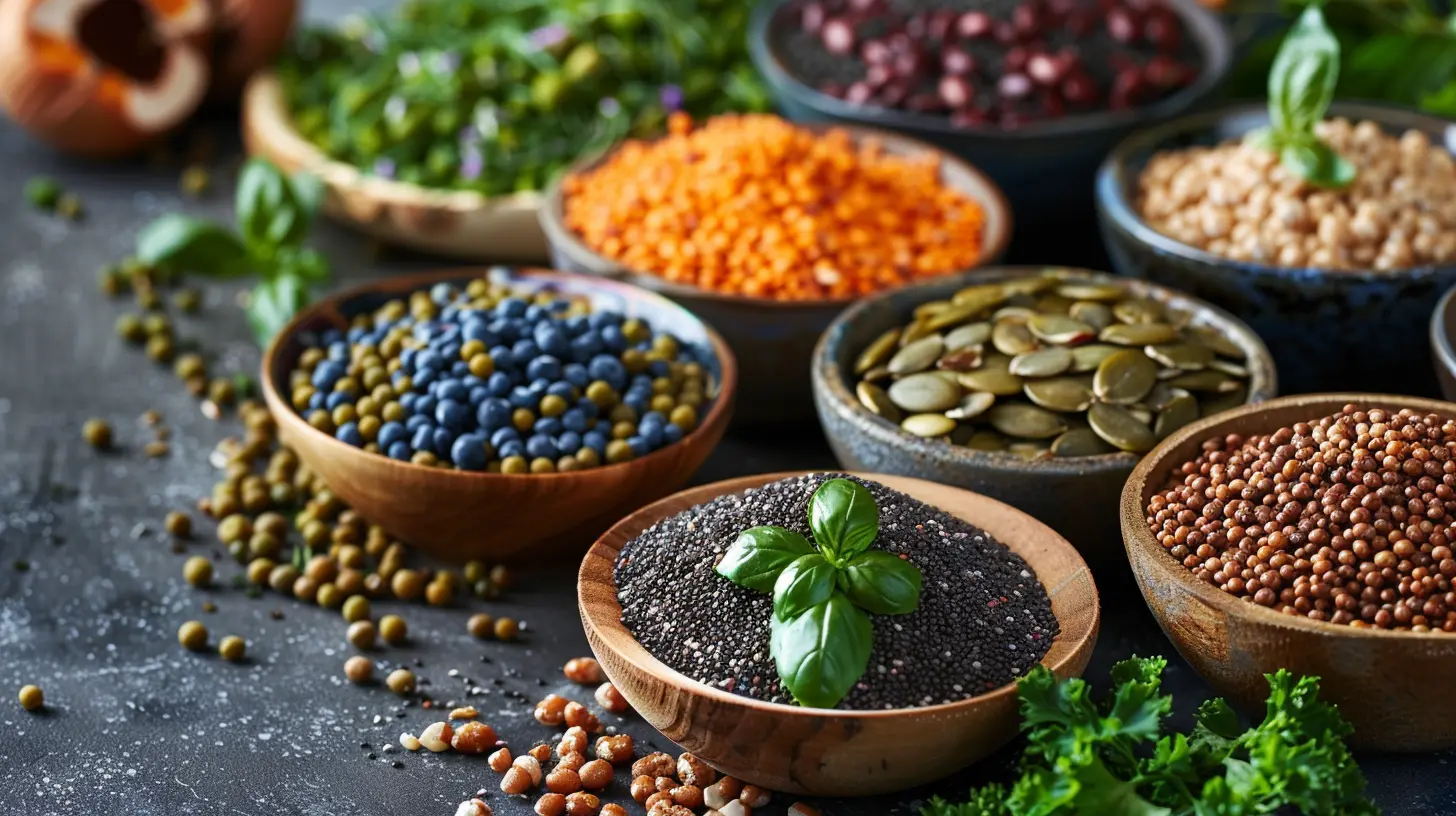
Complete vs. Incomplete Proteins – Should You Care?
Ever heard someone say plants don’t offer "complete" protein? That’s halfway true—but it's also misunderstood.A complete protein contains all nine essential amino acids your body can’t make on its own. Most animal products fit the bill. Some plant-based foods like quinoa, soy, hemp seeds, and buckwheat are complete too.
But even if a plant is “incomplete,” it’s not useless. As long as you're eating a variety of plant foods throughout the day, your body is smart enough to piece together the amino acids—like assembling a protein puzzle. Boom! Problem solved.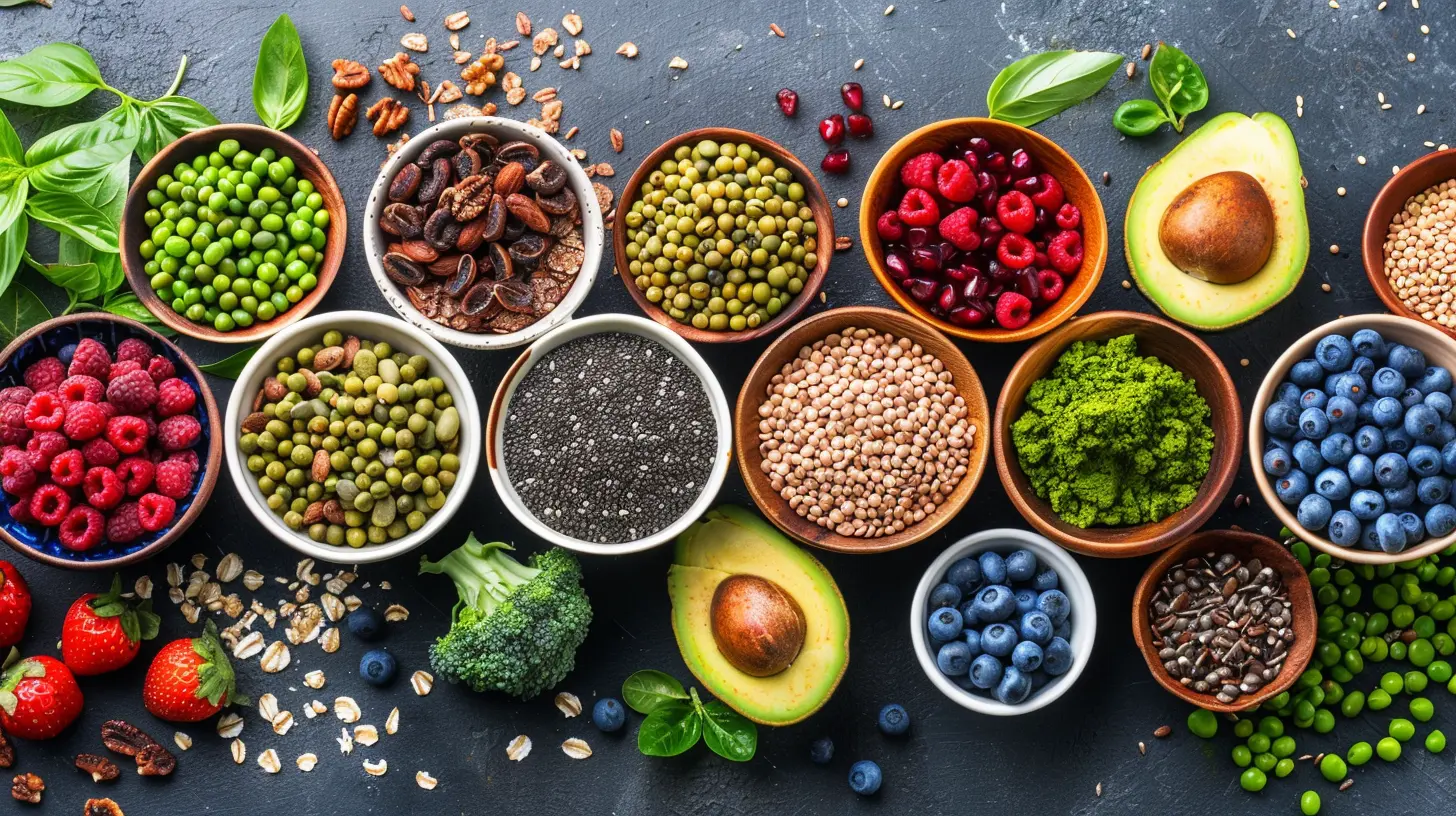
Top Plant-Based Protein Sources for Athletes
Let’s get down to the nitty-gritty. Here are the MVPs of plant-based protein:1. Legumes (Lentils, Beans, Chickpeas)
One cup of cooked lentils packs 18 grams of protein. Plus, they’re full of iron and fiber. Don’t overlook the humble bean—it’s a beast in your protein game.2. Tofu, Tempeh & Edamame
Soy-based products are powerhouses.- Tempeh (fermented soy): ~20g per cup
- Tofu: ~10g per ½ cup
- Edamame: ~17g per cup
They’re also complete proteins. High five!
3. Quinoa
A pseudo-grain and a complete protein? Yes, please. One cup of cooked quinoa gives you around 8 grams of protein.4. Seeds and Nuts (Chia, Hemp, Pumpkin, Almonds)
- Hemp seeds: 10g per 3 tbsp- Chia seeds: 5g per 2 tbsp
- Pumpkin seeds: 8g per ¼ cup
Toss them into smoothies, oatmeal, or yogurt-alternatives for a sneaky protein boost.
5. Whole Grains (Oats, Brown Rice, Ezekiel Bread)
Oats give you about 6 grams per cup, and grains like farro and barley do even better. Ezekiel bread (made from sprouted grains) is next-level for protein and fiber.6. Plant-Based Protein Powders
Sometimes, whole foods alone won’t cut it. A scoop of quality vegan protein powder (pea, hemp, rice, or a combo) offers 20–25 grams per serving—easy protein with no chewing required.Timing Is Everything: When to Eat Protein
Think of your muscles like growing plants. They don’t just need water once a week—they need regular feeding.Post-workout, your muscles are like sponges, ready to soak up nutrients. Aim to refuel with 15–30 grams of protein within an hour after exercise. Pair it with carbs to really maximize muscle repair and glycogen replenishment.
But don’t stress—eating evenly throughout the day is more important than obsessing over perfect timing. Spread out your protein in 3–5 meals/snacks, and your body will thank you.
Sample High-Protein Day for a Vegan Athlete
Here’s what a solid day might look like to keep your protein up:Breakfast:
- Overnight oats with almond butter, hemp seeds, and soy milk – 20g
Mid-morning snack:
- Smoothie with vegan protein powder, banana, spinach, and chia seeds – 30g
Lunch:
- Quinoa salad with black beans, avocado, and grilled tofu – 35g
Afternoon snack:
- Roasted chickpeas + handful of almonds – 15g
Dinner:
- Stir-fry with tempeh, brown rice, and veggies – 35g
Dessert (why not?):
- Vegan protein bar or almond milk hot cocoa – 10g
Daily Total: 145g (Nailed it ✔)
The Role of Supplements – Do You Need Them?
Good news: Most vegan athletes can meet their protein needs without supplements if they’re eating a balanced diet.But let’s be real—life gets busy. If you’re not sure you’re hitting your numbers or just want convenience, supplements can help fill the gaps.
Here are a few worth considering:
- Vegan protein powder: Pea, hemp, soy, or blends. Great for post-workout or busy mornings.
- B12: Not a protein, but crucial for nerve health and energy.
- Iron & Omega-3s: Especially important for endurance athletes.
Always chat with a doc or dietitian before adding anything new—your body’s not a chemistry set.
Common Myths About Vegan Protein (Let’s Bust 'Em)
Let's put some of these plant-protein myths to bed, shall we?💪 “You Can’t Build Muscle Without Meat”
False! Just ask any vegan bodybuilder or athlete crushing records. With smart planning and training, plants build muscle just fine—no animal needed.🥗 “Plants Don’t Have Enough Protein”
Wrong again. You’d be shocked how quickly lentils, nuts, grains, and tofu add up. It’s just about learning which plants bring the heat.🍳 “You Need Eggs and Dairy to Recover”
Nope. Adding BCAAs (branched-chain amino acids) from plant foods does the same job. Recovery is all about total protein and getting enough calories, not where it came from.Tips to Max Out Your Plant-Based Protein Intake
Here are some pro tips to keep your protein game strong:- 👉 Eat a variety of foods. Mix legumes, grains, nuts, and veggies.
- 👉 Snack smart. Keep roasted chickpeas or trail mix handy.
- 👉 Batch cook. Prep big batches of lentils, quinoa, and tofu to grab-n-go.
- 👉 Read labels. Some plant-based foods (like vegan yogurt or cereal) sneak in extra protein.
- 👉 Upgrade your staples. Swap white rice for quinoa, wheat bread for Ezekiel bread.
It’s all about little upgrades that add up in a big way.
Final Thoughts: You Got This
Mastering plant-based protein doesn't mean turning into a nutrition calculator or eating tofu 24/7. It's about listening to your body, staying consistent, and enjoying the incredible variety nature offers.So, whether you're lifting, running, spinning, or chasing your kids around the yard—plants can power you through every mile, rep, and goal.
Remember: you're not just surviving on a vegan diet—you're thriving.
Now go fuel those gains, one chickpea at a time.


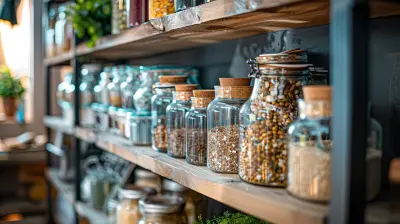
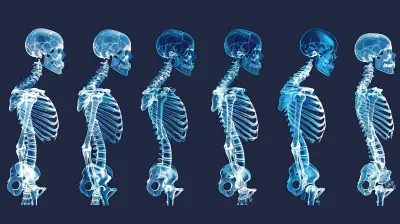
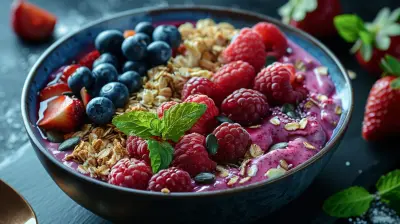
Bryson Mullen
Thank you for shedding light on the importance of plant-based protein for vegan athletes. Your insights offer valuable guidance for those on this journey, helping them thrive while embracing their lifestyle. It's inspiring to see such dedication and compassion for health!
April 25, 2025 at 3:41 PM